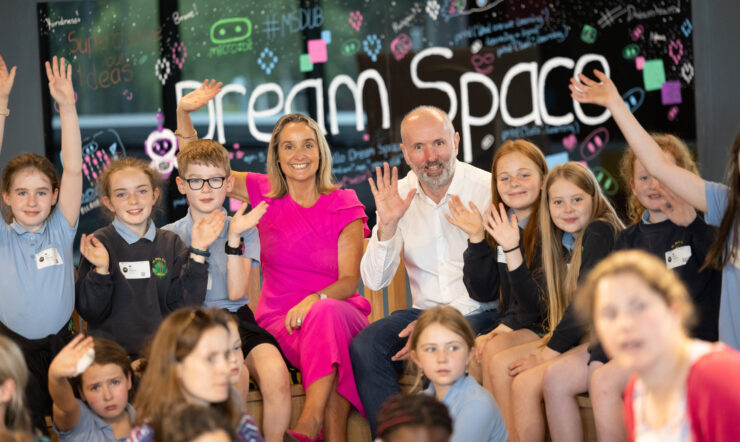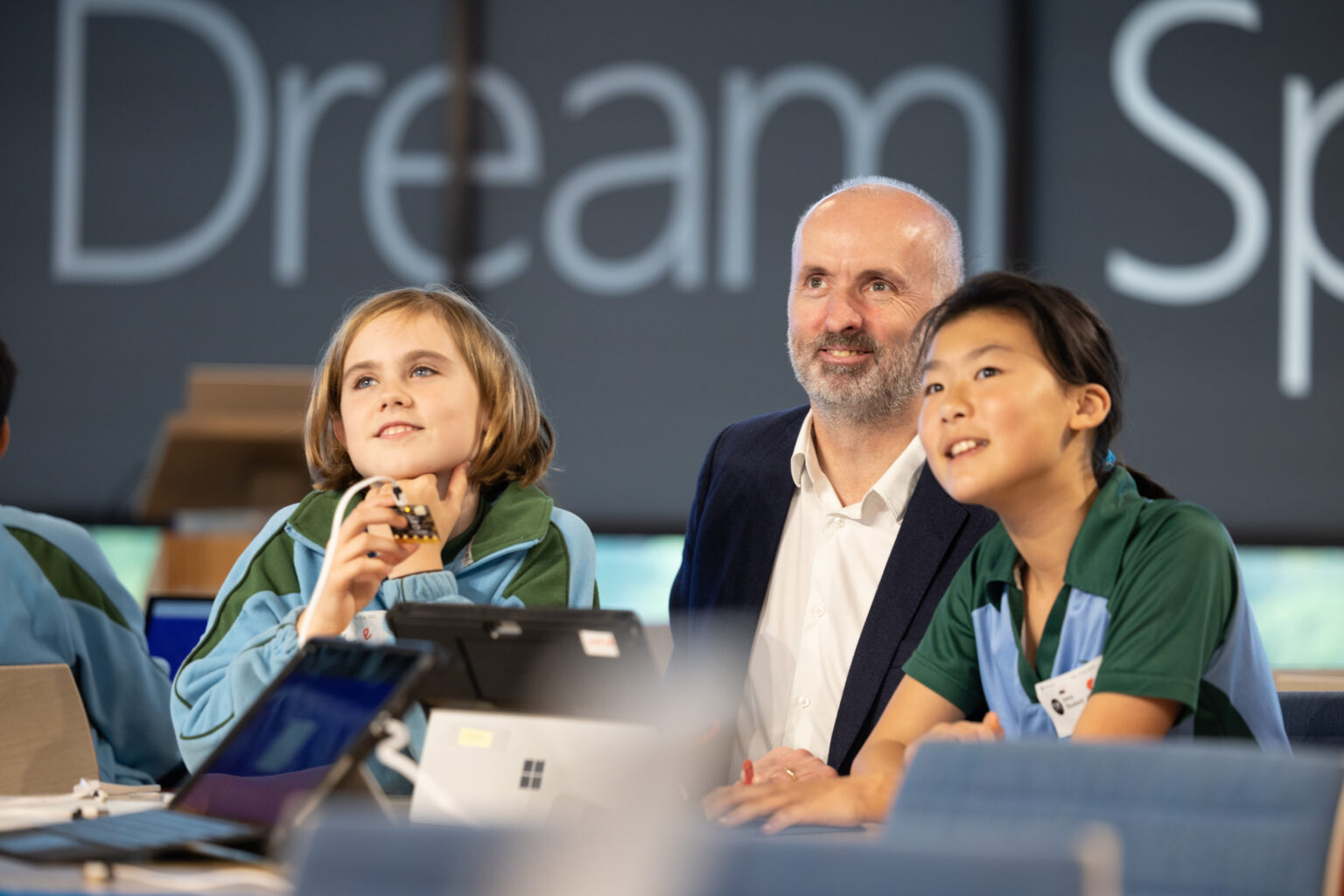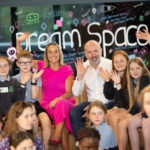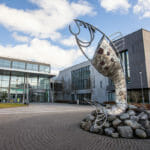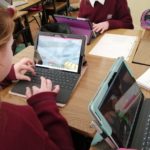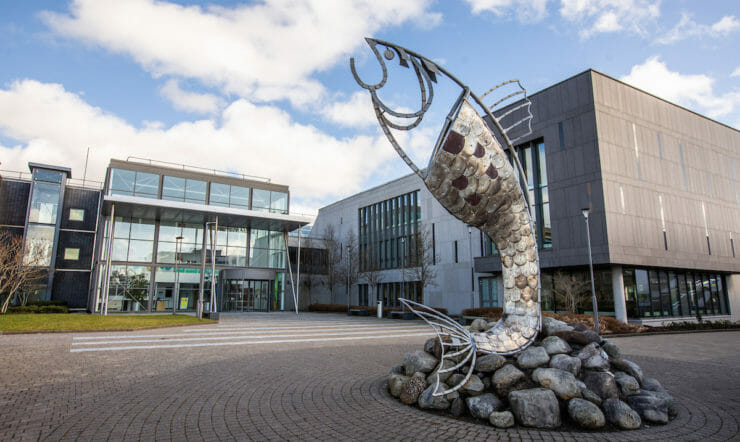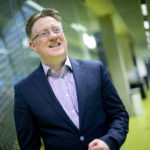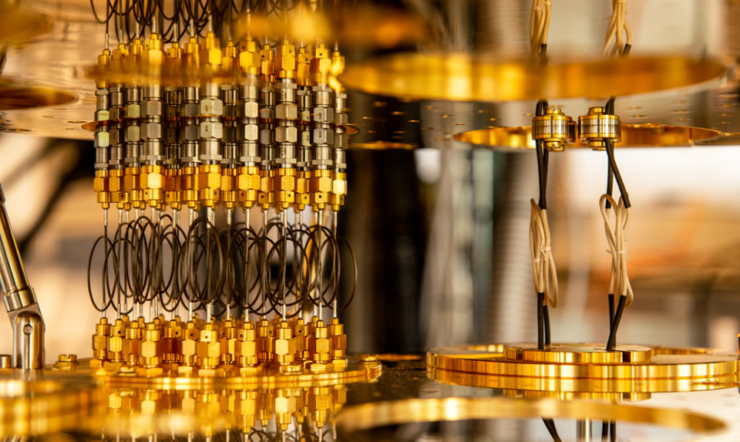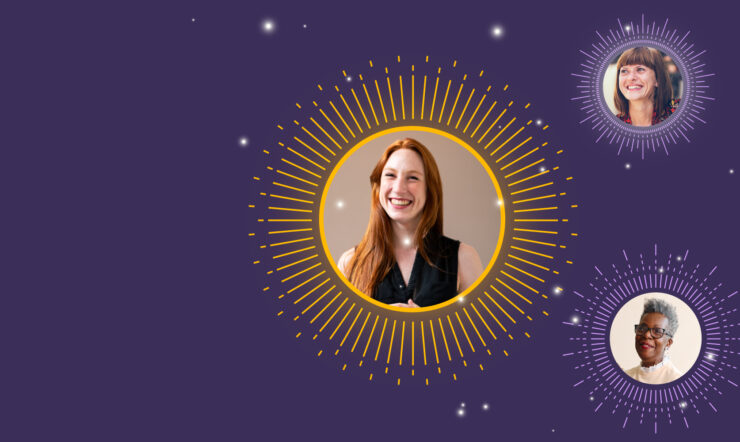Microsoft’s Dream Space to provide almost 1million students with the opportunity to develop their digital skills
Four years ago, Microsoft Ireland set out on a journey to help open the eyes and minds of young people to the endless possibilities offered by technology.
At that time, we recognised how critical digital skills would be in our future but that had yet to be fully realised by wider society. In response to this need we invested €5m in the development of Microsoft Dream Space, a dedicated innovation and education hub at our campus in Leopardstown, Co. Dublin. We had ambitious plans to engage 100,000 primary and secondary school students and their teachers in immersive STEM-based experiences over a four-year period.
Although ambitious, the growth and expansion of Microsoft Dream Space since 2018 has enabled our team of teachers to not only meet the target, but exceed it, with over 130,000 students and teachers engaged in the programme to date.
Evolution
Having taken Microsoft Dream Space on the road and introduced it to students and teachers right across the island of Ireland, when the Covid-19 pandemic, hit we rapidly set to developing a digital Dream Space offering that would support students, parents and teachers navigating remote learning at that time.
During this period, we also worked with RTÉ Home School Hub, making available tailored Dream Space resources to support teachers, parents and students, and we created Dream Space TV, which enabled us to bring our immersive STEM experience into classrooms right across the country from the moment students returned to in-school learning.
In collaboration with RTÉ, we launched Ireland’s first national digital skills competition, Ireland’s Future is MINE. Just over 800 primary schools participated in this national competition, which challenged students to use Minecraft: Education Edition to think creatively, collaborate and problem-solve to help shape Ireland’s sustainable future.
Impact
Post-pandemic, there is an overwhelming realisation of our reliance on technology and the importance of learning digital skills. The way we approached work, daily tasks, education and our wider social interactions changed immeasurably in that period with digital technology shaping how we all work and do business.
It was a turning point for Dream Space also, helping us to accelerate the programme’s reach right across the country and see first-hand students, teachers and entire school communities develop a passion for STEM as a result of their engagement in the programme.
To truly understand the impact that Dream Space was driving, we engaged NUI Maynooth to conduct research over a period of time and the results turned out to be even more positive than we had imagined.
90% of teachers who took part said that Dream Space had positively impacted their use of technology and their students. Most notably, given the gender gap that exists in STEM across Ireland, the research also found a 42% increase in the likelihood of girls wanting to pursue STEM after their Dream Space experience.
These results are a testament not only to the hard work and dedication of our team, but to our many partners within the education community who helped to build the foundations on which Dream Space has been built.
Accelerating Impact
It has been an incredible journey so far and we are committed to accelerating our impact. That’s why we’re excited to announce our intention to invest a further €3million in the expansion of Microsoft Dream Space over the next four years, helping to provide every student on the island of Ireland, almost 1,000,000 in total, as well as their teachers, with the opportunity to engage in this immersive learning experience and develop their digital skills.
Underpinning this expansion will be a suite of new Microsoft Dream Space offerings.
From Dream Space Academy, an in-person learning experience at our Hub in Leopardstown, Co. Dublin that enables students and teachers to develop their digital skills, to Dream Space Digital Academy, an open-access, fully immersive virtual learning environment where students can engage with modules of STEM learning across a variety of pathways. The Digital Academy will inspire, encourage and challenge students through new technologies wherever they’re located in the country.
Skilling Up the Next Generation
Given the positive impact Dream Space has had to date, this renewed commitment couldn’t be more crucial when it comes to opening hearts and minds to the idea of pursuing careers in STEM.
It is even more important when we consider the statistics from Maynooth University which show that by 2030 there will be 6.2m STEM jobs worldwide, but only 2% of graduates will have the right skills for these jobs.[1]
Channelling the curiosity and creativity of our young people into exploring technology at Dream Space is just one step needed in addressing this gap.
Industry, policymakers and the education sector at large must continue to work together to drive broader transformation across the education system, empowering educators to do more and achieve more through technology. Working in partnership, we can help Government to achieve its ambition of being the European leader in STEM education by 2026 and ensure 80% of adults have basic digital skills by 2030.
We are confident that through our investment in Dream Space over the next four years, we will drive STEM learning amongst all our young people, help bridge the growing skills gap, as well as empower our future leaders to reach their full potential.
[1] Maynooth University (2022) https://www.maynoothuniversity.ie/all-institute/all-projects/stem-passport-inclusion
